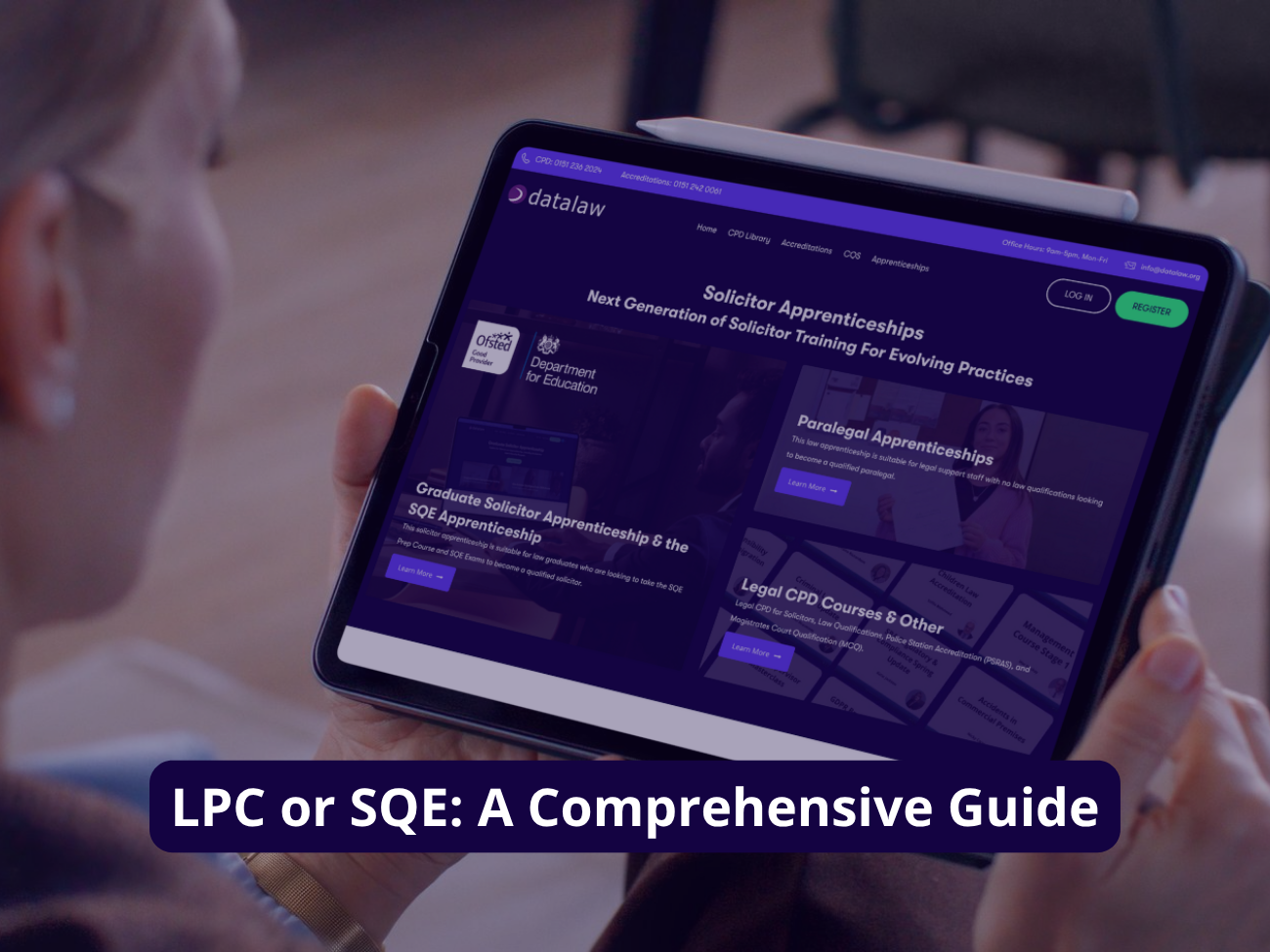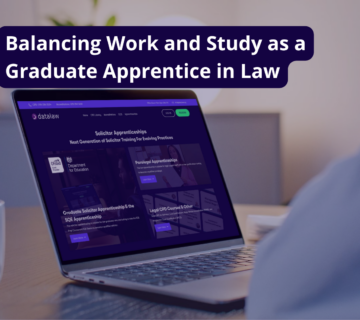The legal education landscape in the United Kingdom is undergoing a historic transformation with the gradual phase-out of the Legal Practice Course (LPC). This marks a pivotal shift towards a revamped, inclusive method of qualifying as a solicitor, by the introduction of the Solicitor Qualifying Exam (SQE). Therefore, many will be asking which do I choose, the LPC or SQE? In this article we will be providing some useful guidance to help answer this question.
The LPC Era Comes to a Close
For many years, the LPC stood as a foundational pillar in the UK’s legal education system, offering a practical and skill-focused route for aspiring solicitors. Despite its historical significance, recent times have seen increasing scrutiny over its suitability, accessibility, and adaptability to the ever-changing legal sector.
The Introduction of the SQE
To address these evolving demands, the Solicitors Regulation Authority (SRA) unveiled the SQE. This innovative qualifying examination represents a shift towards a more uniform and fair qualification pathway, comprising a dual assessment structure that evaluates legal knowledge (SQE1) and practical skills (SQE2). Its aim is to maintain a uniform standard of excellence across all solicitors, irrespective of their educational or career backgrounds.
Revolutionising Legal Education and Training
This shift towards the SQE heralds a major change in legal education. Educational institutions and training providers are reorienting their programs to align with the SQE’s comprehensive evaluation model. Moreover, the SQE introduces greater diversity in candidate profiles by recognising various forms of qualifying work experience, moving away from the conventional training contract model.
The Evolving Legal Qualification Landscape
The SQE is set to redefine the contours of the legal profession in the UK. Its inclusive and adaptable nature is expected to cultivate a more varied legal workforce. Furthermore, it realigns legal education with the contemporary demands of the legal market, equipping new solicitors to navigate a diverse and global legal terrain effectively.
Datalaw’s Contribution to the SQE
At Datalaw, we provide Government-Funded Solicitor Apprenticeships, which means your organisation could claim up to £27,000 in funding per employee to train via the new Solicitor Qualifying Exam (SQE) route. As an Education & Skills Funding Agency approved training provider, we manage the training and directly handle funding claims from the government on behalf of your practice. To find out more you can visit: www.pages.datalawonline.co.uk/level-7-solicitor-qualification
The transition from the LPC to the SQE signifies a change in the UK’s legal education narrative. While it concludes a traditional path to becoming a solicitor, it introduces a more contemporary, equitable, and practical route for legal qualification. The SQE stands at the forefront of legal education, striving to maintain high professional standards while enhancing accessibility and relevance to today’s societal needs.



